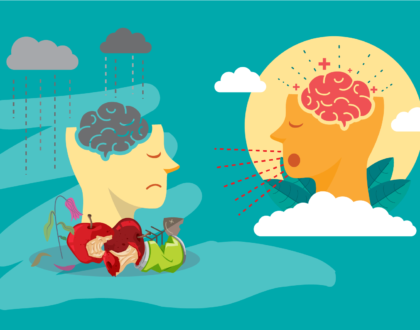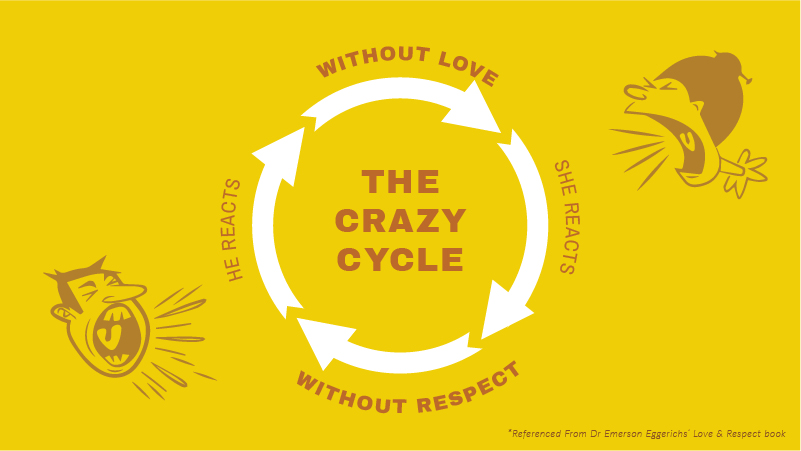Amidst the Storms | Being kind to yourself, your spouse and together

How do couples go through this Covid-19 endemic landscape of change and stress together? Tips for self-care and being kind to one another.
A dear friend who has been married for 35 years shared that recently, she had a brief moment of ‘conflict’ with her husband.
*Dorothy had asked her husband *John for help, but he didn’t reply or even turn around to acknowledge that he heard her. When she pressed on for a response, he turned around and snapped that he was in the midst of checking something. Why can’t you wait just a bit longer, instead of expecting an instant response?’
Be Kind to Yourself | Self-awareness and self-care
Has the media, lack of travel plans, proper breaks away from home led to frustration within you?
Make sure that you are aware of what emotions you are feeling when stress knocks on your door.
Be aware of your emotional state and ‘what’s eating you’.
Look within to find out what’s bothering you. Name the feelings. Is it a sense of helplessness, frustration or even ‘languishing‘?
It’s like having a leak in the ceiling. It doesn’t have to be a big hole that’s letting the storm’s raindrops in. It’s nothing major. But over time, that leak might cause a pool of water on the floor and you really don’t want to slip and fall because of it.
You don’t want to end up lashing out at loved ones because of a build-up of negative feelings.
Name the feelings. Know where the leak is, what triggers the leak and how to clean up the mess.
Ask yourself: Do I want or need to share such feelings with someone? Who can I turn to for support?
Our Asian culture tends to make us feel ashamed about ‘bothering’ others and asking for listening ear. But be kind to yourself. Sharing the issues and emotions that trouble you with a trusted friend will help ease the burden and alleviate the negative feelings.
Valerie Soh, one of the counsellors at Bethesda Care Services cautions vulnerable clients who feel that they have no one to share with to be careful not to fall victim to scams. Strangers who seem to be listening might in fact be actually after money.
Turn to reliable sources of help.
What are some coping strategies that I can practice EASILY to sooth it?
Take a break. Give yourself me-time to recharge and refocus.
Give yourself the permission to take breaks occasionally and practice self-soothing strategies.
What are the activities that help you recharge?
For some of us, it may be making sure we get some fresh air, a short walk, running or cycling helps. For others, it may be simply clocking some me-time to do what you love – baking, reading, sewing or indulging in some sweet desserts.
Keeping your body physically fit will also boosts your overall emotional being.
Know what works for you and also your spouse. Give each other space to get recharged.
Seek out and confiding in your spouse can also refill your emotional tank.
Choose your moments wisely though. Being physically present and together due to work from home arrangements doesn’t mean that your other half is ready to support and hear you out any time of the day.
Starting out your conversations with ‘I’m feeling ___’ will also help your spouse understand that you are expressing your feelings rather seeking solutions or giving a to-do task to him or her. Did the latest news leave you feeling sad or angry? Or was it a scenario that happened earlier in the day that left nasty feelings?
In Dorothy‘s case, she was feeling down not just because of the response that she received from her husband, but due to her recent knee injury. If it had not been for the injury, she would very much have preferred to be able to do without help.
She chose to give herself and also John a break and some space. Rather than pursuing closure for the matter, she drew back even though she felt hurt. She understood that any further discussion of the matter there and then was not likely to be fruitful.
At the same time, she wanted John to understand her feelings. ‘If not for my knee, I would prefer to do things on my own too.’ And she moved on to other chores in the house.
Be Kind Together | ‘We’ versus the Issue, not ‘me’ versus ‘you’
There are tons of decisions to make together as a couple. Division of chores, choosing a new house, weekend plans, even coming to agreements about vaccination for children may be a potential snare. Keep dialogues and discussion respectful and make sure that it’s always ‘we’ versus the issue and not ‘me’ versus ‘you’.
It’s not about proving ‘my way is right’.
Focus on ‘now’ and don’t load up the discussion due to past mistakes. This discussion is not about ‘Listen to me because you screwed up the last decision.’
Ask practical questions and weigh out the pros and cons for each option.
What are the consequences for each option? In the endless debate on ‘being vaxxed’ or not, what are the consequences for the child in terms of everyday living and education or even social interaction with friends?
Be Kind to Your Spouse | Even in cold war
Stay out of the crazy cycle.
Dr. Emerson Eggerichs describes the crazy cycle and how it affects marriages. | Craziness is when we keep doing the same thing – again and again – with the same ill effect. When hurt and frustrated, we continue reacting in negative ways. Based on Ephesians 5:33, I discovered why a husband and wife react the way they do. We read, “each one of you also must love his wife as he loves himself, and the wife must respect her husband” (NIV).
Every couple goes through a rough patch now and then. Keep reactions in check by asking either:
- ‘Did I act in ____ way because I feel unloved?’ (for women) or,
- ‘Did I act in ____ way because I feel disrespected?’ (for men)
Choose to be kind even in disagreements. Coffee still gets served, meals prepared, laundry done and children are sent to school. Continue to love and respect one another.
When children see that their parents are able to continue loving each other despite differences and disagreements, they will also pick up these conflict management skills and behavior in future.
Make the first move towards amendments.
Pride often stands in the way of proper apologies. Not every disagreement gets the closure and solutions the way we hope for in an ideal world. Still, be kind to one another and prioritize relationship over issues.
‘Sorry’ can come in a much more subtle form. Like offering to help with a task, or buying a meal for your spouse.
The next morning, Dorothy happened to be up earlier than usual, she decided to make breakfast. She didn’t often prepare breakfast, only when there was time. And it happened that sleep wasn’t coming back easily to her.
John was happy to see that there was breakfast that morning before he headed out for work.
John started texting Dorothy later that day, which broke their mini ‘cold war’. It was simple messages like checking in on her if she had had her lunch that day.
Recognize your partner’s needs.
Every couple has unique dynamics. What worked for my dear friend, Dorothy, and her husband may not ‘cut it’ for another. She didn’t really get a ‘sorry’. But she did ignore John‘s messages for a good half day before letting bygones be bygones and moved on.
Her little recount is not about who was right or wrong. It’s also possible that John happened to need some space due to external factors like work messages when Dorothy first asked him for help.
To Dorothy, being kind to one another means being willing to reconcile and prioritizing the relationship over other things.
Your story may be different because we all have different needs.
On difficult days, your partner may just need a good welcome home greeting after being in multiple meetings in office for the day. Or an extra helping hand to do the laundry or dishes for the stay home mom.
Appreciate and affirm each other of the good you see in one another.
Acknowledge the good even amidst the flaws.
How will you be kind this year?
Difficult seasons in life can really stress up any individual and kill the joy in relationships. And with the long drawn out battle in this coronavirus ridden world, we hope that some of the pointers from Dorothy‘s sharing and this article may be an encouragement and help make 2022 better for you. Be kind to yourself and loved ones.
Wishing you a beautiful Valentines.
Questions for Reflection:
- Are there any areas where I have been unkind to myself or my spouse? How can I do better?
- Am I hanging on to any old mistakes or grudges and letting it color my current thoughts?
*Dorothy prefers to remain anonymous, hence pseudo-names have been used in this article.
Please take note that this article is not a full representation of a counselling session but a heartfelt sharing from a friend combined with some relationship and self-care tips provided by the counselling staff at Bethesda Care Services.
Bethesda Care Services provides professional casework and counselling services for individuals, couples, and families seeking help with relational, emotional and psychological issues or financial difficulties. We are located at 300 Bedok North Avenue 3. To find out more, please visit our website or our Facebook.
Recommended Posts

Slay Queens | Youth Conversations about Body Image
October 10, 2023

Every Day Is Valuable
May 28, 2021

Do You Speak Life or Death into the People Around You?
October 08, 2020



